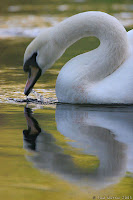
Be true to your own self, love yourself absolutely.
~Nisargadatta; I am That
Some Buddhist teachers talk as though awakening were a form of dissociation. They describe feelings as patterns and energy, and relationships as sensations and pixels, as though dissolving the cognitive or emotional content of experience were a release from human suffering.
There is a kind of bloodlessness in this approach to practice that is chilling. I think this is because these teachers are disconnected from their own psychologies, rigidly defended against their feelings, and have cultivated practice as a blessed escape from the painful demands of everyday life. After all, everyday life is a series of risks: the risk of conflict in relationship, the risk of failure in getting a job, the risk of total humiliation in love, the risk of drudgery in raising a family. The list is endless.
But dissociation is an escape from suffering, not its transcendence. Practice is not about becoming dispassionate or disengaged or even about becoming more self-sufficient. Trying to master oneself is like throwing out the baby with the bathwater. As my own teacher likes to say, quoting an anonymous Buddhist nun: don't pull up the flower with the weed!
Passion is not the enemy. It is the flower and the weed, the poison and the cure. But we are so full of self-loathing and have forgotten our own basic goodness. We are embarrassed rather than fascinated by ourselves and shun our own image rather than look deeply into it. When Narcissus saw his own reflection, he fell in love, not with his face, but with his beauty. This is the luminous mind that shines through every human face, every beauty mark, every blemish. My old mentor Robert Misrahi used to call it l'universel particulier: toi (you).
Love is the answer:
When you realize the depth and fullness of yourself, you know that every living being and the entire universe are included in your affection. But when you look at anything as separate from you, you cannot love it for you are afraid of it. Alienation causes fear and fear deepens alienation. It is a vicious circle. Only self-realization can break it. Go for it resolutely.
(Nisargadatta; I am That)
